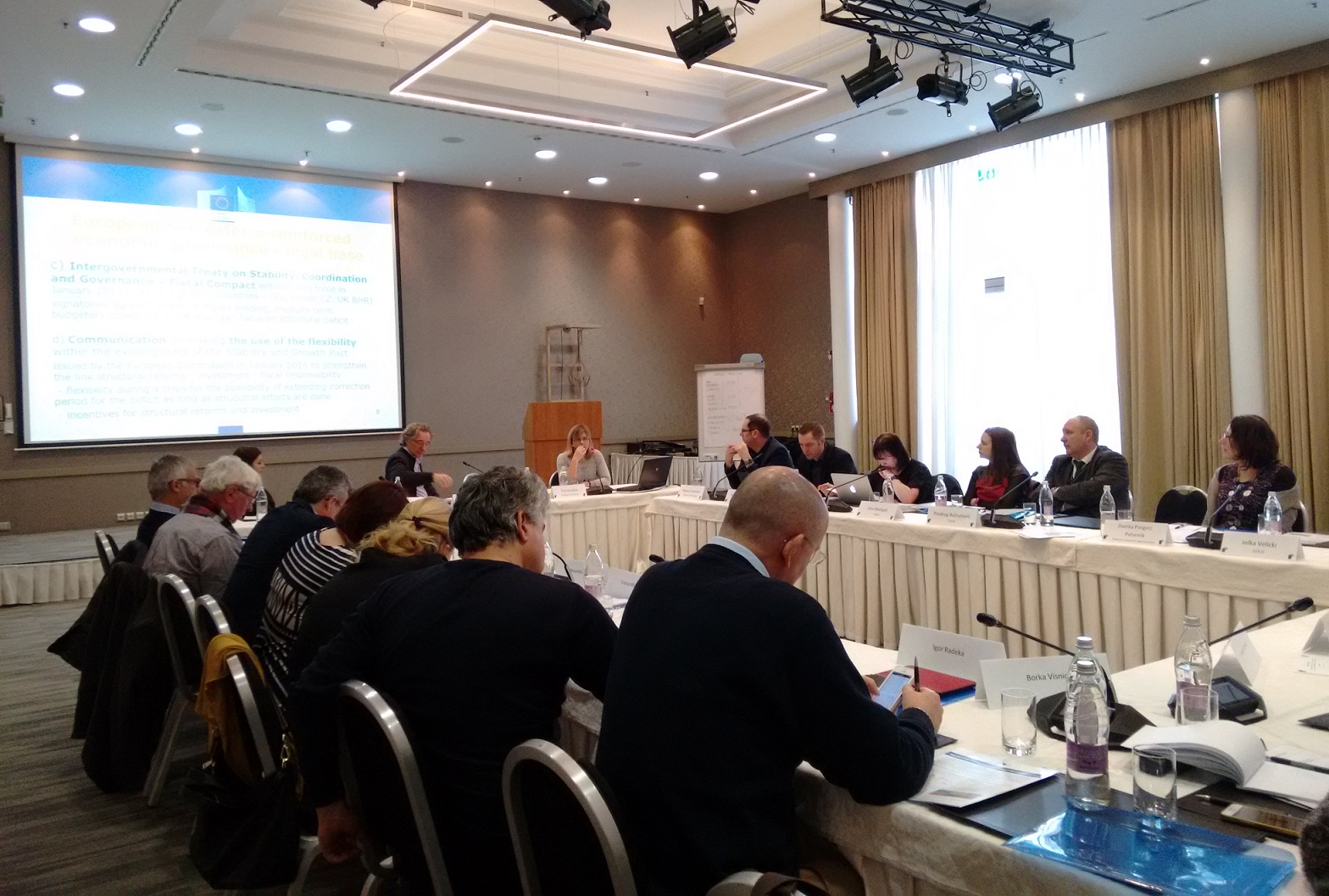Investing in education: ETUCE Training Seminar on the European Semester in Ljubljana
Published:
On 16-17 January, the fourth and last training seminar of the project “Investing in Education: Strengthening the involvement of teacher trade unions in the European Semester on education and training” was carried out. Organised with the support of the ETUCE project partner in Slovenia, ESTUS, the Education and Science Trade Union of Slovenia and DLF, the Danish Union of Teachers, the Seminar gathered representatives from ETUCE member organisations in Albania, Bosnia and Herzegovina, Croatia, Denmark, Montenegro, Serbia, Romania, Slovenia and the UK in Ljubljana, Slovenia, to discuss economic governance coordination mechanisms (European Semester) on education and training in Europe. The meeting was chaired by the President of ETUCE, Christine Blower.
Given the participation of representatives from EU-candidate countries, the seminar put the economic governance framework of the EU in a broader context: participants learnt how the European Semester mechanism and the Europe 2020 strategy targets influence policymaking in the EU and beyond. Against this background, participants asserted the vital importance of social dialogue to represent teachers’ needs and views throughout the European and national policy making.
The seminar could benefit prof the contribution of external speakers. Mr Georgios Zisimos (European Training Foundation - ETF) presented to participants the South East Europe strategy for 2020 (SEE2020). Likewise the Europe 2020 strategy, the SEE2020 sets strategic targets for EU candidate countries, including on education and training, which are ought to be delivered through the Economic Reform Programmes. Prof Howard Stevenson from the University of Nottingham, who is involved in the ETUCE project as a researcher, presented privatisation patterns in and of education. In active workshops, such trends and recent reform programmes were discussed and compared. Thomas Hoelgaard, DLF, illustrated the strategy DLF set up to be better involved in the European Semester. By looking at the recent development in Slovenia, Sandi Modrijan, ESTUS, presented how budgetary policies influence education reforms in the specific context.
Participants identified how trade unions’ daily activities and social dialogue inherently contribute the European Semester reports and reform plans. Representing the European Commission, Ms Tina Vončina, European Semester Officer in Slovenia, equally pointed out the role of social dialogue and trade unions in negotiation procedures and explained how consultations with the European Commission in the context of the European Semester are conducted. Branimir Štrukelj, General Secretary of ESTUS and ETUCE Vice-President, sketched the challenges and actions for trade unions to participate in the policy making throughout the European Semester process. In the last active workshop, participants discussed common problems and put forward ideas to influence the European Semester.
The final conference of the project is going to take place in Brussels, in May 2017.
See pictures of the training here.